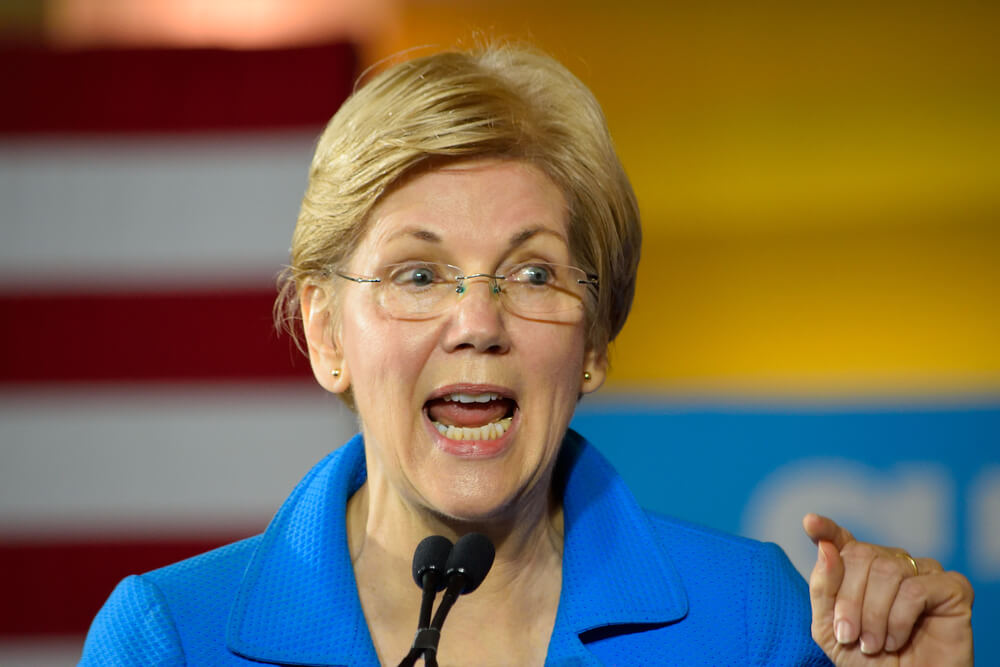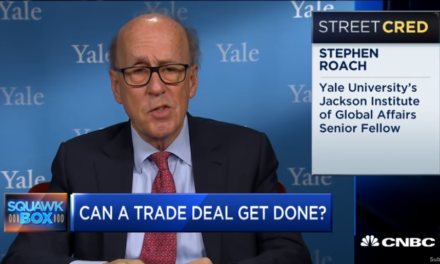Heading into the 2020 election season, a number of Democratic hopefuls already have pushed ideas to raise taxes on the wealthy.
Sens. Elizabeth Warren, D-Mass., and Bernie Sanders, I-Vt., have voiced support for their own “wealth tax” plans.
But that’s not the only item likely to be on their tax-hike agendas. Look out Wall Street, the Democrats have eyes on investment profits as well — which actually could bode well for them among blue-collar Americans who are put off by President Donald Trump’s personality, Twitter feed and temperament.
This is a question they’ll pose to voters: “Why is profit taxed less than earned income?”
More on that, per CNBC:
Higher capital gains and estate taxes “are more consistent with a story about work versus wealth, so therefore more attractive from a thematic point of view,” reasoned Jake Sullivan, who coordinated policy for Hillary Clinton’s 2016 campaign.
“Things like the millionaires surtax we proposed in 2016 now feel kind of boring,” Sullivan added. “It’s not that raising income taxes on millionaires isn’t politically salable, it’s just not as compelling as taxing returns to wealth.”
The growing blue-collar tilt of the Trump-era GOP base makes the target even more tempting. Though business-friendly GOP congressional leaders resist all tax hikes, rank-and-file Republicans back capital gains increases more than other kinds, said Democratic pollster Geoff Garin.
The top rate on capital gains last matched the top rate on labor income after the bipartisan 1986 tax reform signed by President Ronald Reagan. It set both at 28 percent.
Subsequently, the rate on capital gains edged down, while the rate on income edged up. Estate taxes have fluctuated in rates and the size of estates subject to tax.
The 2017 tax cut signed by President Donald Trump reduced the top rate on income to 37 percent from 39.6 percent but left the top capital gains rate unchanged; for both, the highest earners face the additional 3.8 percent tax enacted to help finance Obamacare. The estate tax remained at 40 percent, but the law reduced the number of taxable estates by doubling exempted amounts to $11 million for individuals and $22 million for married couples.
Rep. Alexandria Ocasio-Cortez, a fiery first-term New Yorker in the new House Democratic majority, seized headlines by suggesting a 70 percent top rate on the highest incomes. But the party’s presidential candidates have different ideas.
To finance his spending plans, Sen. Bernie Sanders of Vermont has proposed raising the top personal and capital gains rates to 54 percent — a much higher increase in the latter. He would lift the top estate tax rate to 65 percent.
When Sen. Kamala Harris of California called for big federal investments in teacher salaries this week, she identified higher estate taxes as her financing source. When Sen. Elizabeth Warren of Massachusetts proposed expanded affordable housing and universal child care, she tapped estate taxes and a new “Ultra-Millionaire Tax.”
By levying 2 percent each year on assets of families worth more than $50 million, and another 1 percent for those worth more than $1 billion, Warren would tax capital gains as they occur without waiting for assets to be sold, as current law does. By preserving the existing capital gains tax, she would tax gains both ways.
2020 Democratic hopeful John Delaney considers Warren’s “wealth tax” vulnerable to constitutional challenges as a confiscation of property. He plans to equalize income and capital-gains rates, which faces a different kind of opposition.
Some Democratic economists say equalization would increase the “lock-in” effects that deter asset sales. Fewer assets sold means fewer realized profits to tax.
“Pushing the rate up past 30 percent is estimated to cost the government revenue, so what is the point?” asked Larry Summers, a top advisor to Presidents Bill Clinton and Barack Obama. Another former Obama economist, Betsey Stevenson, suggests eliminating the “step-up” basis for inherited assets that now allows vast amounts of capital gains to escape taxation permanently.
There’s also intraparty political disagreement. Clinton’s 2016 pollster Joel Benenson still prefers income tax hikes on the wealthiest Americans as “easiest to understand because everyone pays income tax.”
Yet his veteran counterpart Stan Greenberg notes that ordinary families pay their own wealth levies through local property taxes. Greenberg envisions a simple, potent question for voters: “Why is profit taxed less than earned income?”




